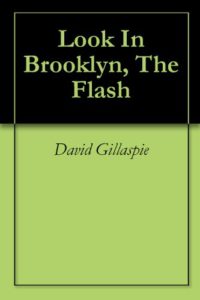
I started watching Mindhunter halfway through reading Malcolm Gladwell’s recent book, Talking To Strangers. It’s a strange combination ranging from creepy to creepier.
Mindhunter tells about the FBI effort to understand what motivates serial killers. If that’s not creepy enough, the killers they interview had attacked women.
Based on a true crime book, the killers portrayed look and act like who they are, bad seed murderers.
After watching a few episodes, I switched off the TV and picked up Talking To Strangers for relief from the gruesome topic of serial killers.
What better way to change gears than moving from one horror to another? The Gladwell book includes the police case against Stanford rapist Brock Turner. For background, Gladwell describes the science behind black-out drinking.
He talks about Amanda Knox in Italy, and how behavior can signal a false reaction in law enforcement; Sylvia Plath and the opportunistic suicide; the draw for jumping off of the Golden Gate Bridge.
Added together, Mindhunter and Talking To Strangers create a world of uncertainty and despair, with hints of hope.
If there’s one thing I like, it’s hope. I grew up with hope. What sort of hope? I hope people treat one another better than expected; I hope things turn out better than anticipated.
Contagious Hope
A little hope goes quite a ways, but you’ve got to build it, then build on it.
The best way to build hope? Be a positive influence to others when you’re not feeling it; demonstrate hope through action.
If you have a chance to complain, let it go until you have a chance to fix the reasons to complain.
Both Mindhunter and Talking apply to the current climate of coronavirus isolation. The first is an attempt to understand how government moves to help We The People; the second is a way to decipher elements of truth.
Gladwell’s research and work talked about Default To Truth, which is another way of saying Benefit of Doubt. My takeaway was that if someone acts whacky, they’re not always a whacko; a guilty acting suspect isn’t always guilty.
The other concept I found too interesting was Coupling. If someone walked across the Golden Gate Bridge to work, had the worst day of their life, and had to walk back? Added together, they might be a jumper.
Sylvia Plath lived in England when the country was heated by what’s called Town Gas. It was a lethal combination of elements for those with their head in an oven, like Ms Plath. Once it was replaced by natural gas, the suicide numbers dropped.
A bad day with a suicide machine in the kitchen left the biggest number of self-inflicted deaths than any other method, which dropped once natural gas came in.
Coronavirus may have the same coupling effect. An elderly man or woman may lose hope once they’re diagnosed, and a loss of hope can be deadly.
An ill older person watching young folks gathering and getting down at concerts and bars and restaurants might feel like it’s time, that they’ve had a good life, and it’s time to go.
If you can, give some hope to strangers and just say nope for the time being. Be better at social distancing.
Thank you from one sixty-five year old in Tigard, Oregon.


